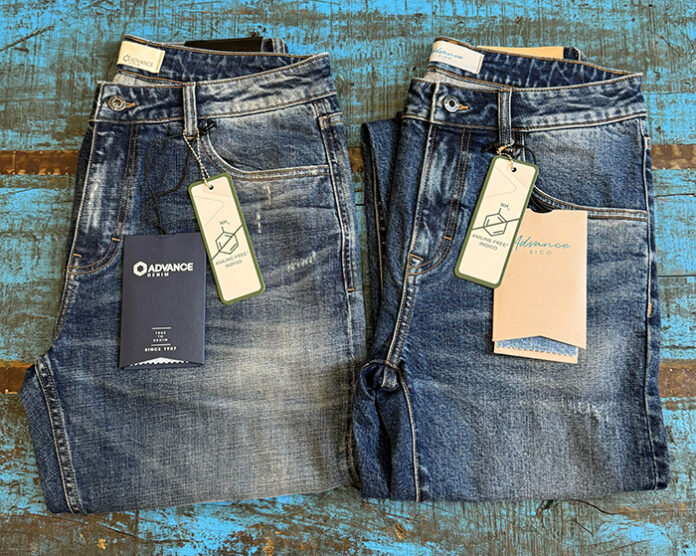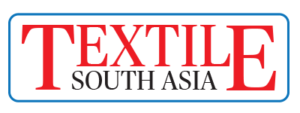With the aim to help the denim industry reduce the environmental impact of its wastewater and move towards circularity, three leaders from across the denim supply chain have renewed their joint commitment to the production of aniline-free denim apparel based on Archroma’s DENISOL PURE INDIGO 30.
Archroma, a global leader in specialty chemicals towards sustainable solutions, has been working with innovative Dutch denim brand G-Star RAW and sustainable denim leader Advance Denim since 2019.
Their joint aim is to produce high-quality denim in authentic blue shades without the aniline impurity carried through from the synthesis of standard synthetic indigo. In traditional denim production, this aniline remains bound with the indigo pigment on the fabric; the remaining aniline is discharged during the dyeing and washing process. This can be a problem because aniline is toxic to aquatic life and two-thirds of aniline waste currently ends up in wastewater discharge where it could potentially pollute waterways and the ocean.
Archroma developed DENISOL PURE INDIGO 30 to answer this key challenge. A 30% pre-reduced indigo solution, DENISOL PURE INDIGO 30 makes it possible to produce indigo-dyed denim without aniline impurities throughout the process.
Easy to use with automated dosing, DENISOL PURE INDIGO 30 significantly reduces the water needed for preparation, washing and wastewater treatment compared to indigo grains. It also reduces hazardous chemical consumption while allowing high reproducibility and creating the authentic and iconic deep indigo shades traditionally associated with denim.
“If we remove aniline from the indigo dyes, we also remove it from the denim production process and its wastewater, and thus eliminate the risk of pollution. Denim that is free of aniline can also be more efficiently and sustainability recycled and reused, making circularity a more viable option,” Umberto De Vita, Market Segment Director for Denim, Archroma Textile Effects, said. “We are delighted to see trendsetters like G-Star RAW ramping up aniline-free production with DENISOL PURE INDIGO 30, proving that sustainability is achievable with improved productivity and authentic deep indigo shades.”
“To be here as the denim brand in the future, G-Star RAW challenges industry standards,” Rebecka Sancho, G-Star RAW said. “We push boundaries in our journey to further close the loop by using sustainable materials, clean chemistry and by designing for durability and reuse. DENISOL PURE INDIGO 30 helps us to minimize pollution and improve the environmental impact of our products without compromising on iconic indigo colors.”
G-Star RAW is working towards making 20% of its entire collection from Cradle to Cradle Certified fabrics by 2025. Its partnership with Archroma and Advance Denim contributes to this goal, since the aniline-free DENISOL holds a Gold Level Material Health Certificate from the Cradle to Cradle Products Innovation Institute. DENISOL PURE INDIGO 30 is also compliant with other major eco-standards and the requirements of leading retailers and brands.
“As a company that is dedicated to the production of denim that is both authentic and sustainable, Advance Denim is proud to work with industry innovators like Archroma and G-Star RAW,” Amy Wang, Managing Director, Advance Denim, said. “We were the first mill in China to launch an aniline-free collection with Archroma and our new plant in the resort town of Nha Trang in Vietnam is a 100% aniline-free indigo factory with DENISOL PURE INDIGO 30 by Archroma.”
Johan Van den Heede, Director – Europe Marketing, Advance Denim, added, “We are honored to stand alongside Archroma and G-Star RAW to pioneer cleaner denim production methods that reflect our unwavering commitment to sustainability and innovation.”
Advance Denim’s aniline-free indigo collection offers various rich authentic indigo shades in different yarn characters and sustainable fiber compositions with multiple innovative constructions.
Advance Denim, G-Star RAW and Archroma have previously collaborated to launch collections based on Archroma’s EarthColors technology, which upcycles plant waste from the herbal industry to create sustainable colorways.










